Related Research Articles
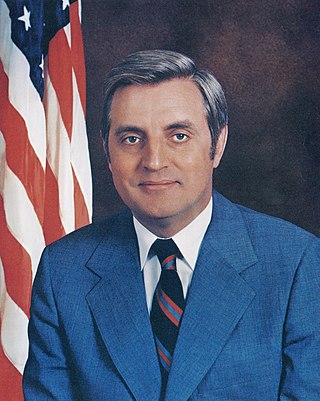
Walter Frederick "Fritz" Mondale was an American lawyer and politician who served as the 42nd vice president of the United States from 1977 to 1981 under President Jimmy Carter. A U.S. senator from Minnesota from 1964 to 1976, he was the Democratic Party's nominee in the 1984 presidential election, but lost to incumbent Ronald Reagan in an Electoral College and popular vote landslide.

The Minnesota Democratic–Farmer–Labor Party (DFL) is a political party in the U.S. state of Minnesota affiliated with the national Democratic Party. The party was formed by a merger between the Minnesota Democratic Party and the Minnesota Farmer–Labor Party in 1944. The DFL is one of two state Democratic Party affiliates with a different name from that of the national party, the other being the North Dakota Democratic–Nonpartisan League Party.
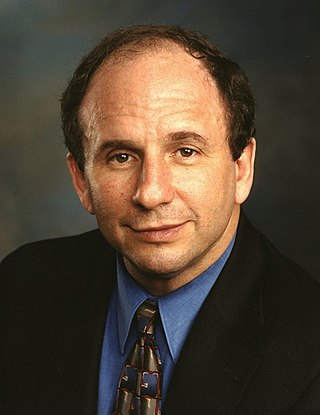
Paul David Wellstone was an American academic, author, and politician who represented Minnesota in the United States Senate from 1991 until he was killed in a plane crash near Eveleth, Minnesota, in 2002. A member of the Democratic Party (DFL), Wellstone was a leader of the populist and progressive wings of the party.

Dean Malcolm Barkley is an American attorney and politician who briefly served as a United States Senator from Minnesota from 2002 to 2003 as a member of the Independence Party of Minnesota. The founder and chair of the Minnesota Reform Party, he was the chairman of Jesse Ventura's successful upset bid for governor of Minnesota in 1998. Ventura subsequently appointed him director of the state's Office of Strategic and Long Range Planning. After Senator Paul Wellstone died in a plane crash just weeks before the 2002 election, Ventura appointed Barkley to fill Wellstone's Senate seat. His brief tenure ended when Republican Norm Coleman was elected and sworn in to fill the seat.

Norman Bertram Coleman Jr. is an American politician, attorney, and lobbyist. From 2003 to 2009, he served as a United States Senator for Minnesota. From 1994 to 2002, he was mayor of Saint Paul, Minnesota. First elected as a member of the Democratic–Farmer–Labor Party (DFL), Coleman became a Republican in 1996. Elected to the Senate in 2002, he was narrowly defeated in his 2008 reelection bid. As of 2024, he is the most recent Republican to have represented Minnesota in the U.S. Senate.
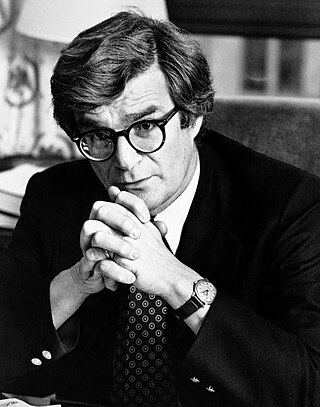
Rudolph Ely “Rudy” Boschwitz is an American politician and businessman from Minnesota. A member of the Republican Party, he served as a member of the United States Senate from 1978 to 1991.

Patrick Joseph Kennedy II is an American retired politician and mental health advocate. From 1995 to 2011, he served as a Democratic member of the United States House of Representatives from Rhode Island's 1st congressional district, and was the first Generation X member of congress when he took office in 1995. He is a former member of the Opioid and Drug Abuse Commission and a co-founder of One Mind, a mental health nonprofit.

James Marvin Ramstad was an American lawyer and politician who represented Minnesota's 3rd congressional district in the United States House of Representatives from 1991 to 2009. A member of the Republican Party, Ramstad served in the Minnesota Senate from 1981 to 1991.
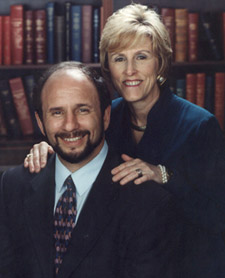
Sheila Ison Wellstone was the wife of and advisor to United States Senator Paul Wellstone, with whom she died in a plane crash, and an advocate for various causes, particularly prevention of domestic violence.
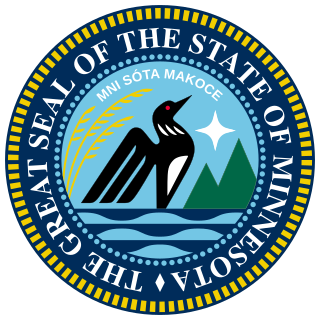
Minnesota is known for a politically active citizenry, with populism being a longstanding force among the state's political parties. Minnesota has consistently high voter turnout, ranking highest or near-highest in recent elections. This is due in part to its same-day voter registration laws; previously unregistered voters can register on election day, at their polls, with evidence of residency.

re:power, formerly Wellstone Action, is a 501(c)(4) progressive advocacy organization founded by longtime political operative Jeff Blodgett. Based in Minnesota, it trains community organizers, student activists, campaign staff, progressive candidates and elected officials. The organization was originally named after Paul Wellstone, a U.S. Senator who died in a plane crash along with his wife, Sheila, and daughter, Marcia, on October 25, 2002. After Wellstone's death, his surviving children and former campaign manager founded the group to carry on Wellstone's populist approach to progressive politics.
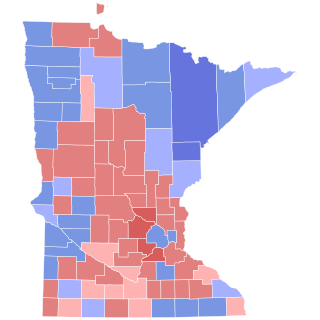
The 2002 United States Senate election in Minnesota took place on November 5, 2002. Incumbent Senator Paul Wellstone was running for a third term but died in a plane crash eleven days before the election. The Democratic–Farmer–Labor Party (DFL) quickly chose former Vice President and 1984 presidential nominee Walter Mondale to replace Wellstone on the ballot. Mondale had previously held the seat from 1964 to 1976, resigning to assume the vice presidency. He narrowly lost to Republican Norm Coleman, the former mayor of Saint Paul. The day before the election, Governor Jesse Ventura appointed the 1996 Independence Party candidate, Dean Barkley, to serve the remainder of Wellstone's term.
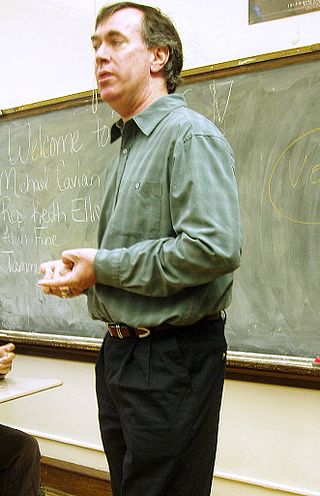
Michael Cavlan is a Minnesota political activist and registered nurse living in Minneapolis.

Public Law 110-343 is a US Act of Congress signed into law by U.S. President George W. Bush, which was designed to mitigate the growing financial crisis of the late-2000s by giving relief to so-called "Troubled Assets."

The 1996 United States Senate election in Minnesota was held on November 5, 1996. Incumbent Democrat Paul Wellstone won reelection to a second term defeating former Republican Senator Rudy Boschwitz in a rematch.

Ken Martin is an American political figure from Minnesota. He is Chairman of the Minnesota Democratic-Farmer-Labor (DFL) Party, President of the Association of State Democratic Committees, and a Vice Chair of the Democratic National Committee.
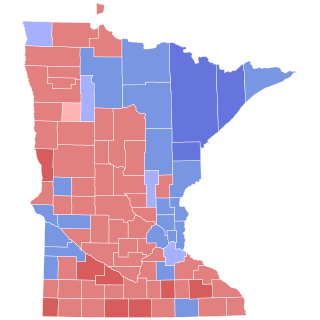
The 1990 United States Senate election in Minnesota was held on November 6, 1990. Incumbent Republican U.S. Senator Rudy Boschwitz was defeated by Democratic challenger Paul Wellstone in a tight race. Widely considered an underdog and outspent by a 7-to-1 margin, Wellstone was the only candidate to defeat an incumbent senator as well as the only candidate to flip a seat in the 1990 election cycle and gained national attention after his upset victory. The race was also notable as the first in the history of the U.S. Senate where both major-party candidates were Jewish.

Peggy Flanagan is an American politician, community organizer, and Native American activist serving as the 50th lieutenant governor of Minnesota since 2019. A member of the Minnesota Democratic–Farmer–Labor Party (DFL), Flanagan served in the Minnesota House of Representatives from 2015 to 2019.

The Anna Westin Act of 2015, is a bill which is aimed at training school officials and healthcare professionals on how to identify those with eating disorders and on how to intervene. 30 million Americans suffer from eating disorders. Eating disorders have the highest mortality rate out of any mental illness and affects women 2.5 times more than men. Additionally, eating disorders research to improve identification and treatment is limited. Eating disorder research receives some of the lowest amounts of research funding compared to all other diseases at $30 research dollars per person affected versus $188 research dollars for Autism and $682 research dollars for Breast Cancer.
References
- ↑ "Mental Health and Substance Abuse | C-SPAN.org". www.c-span.org. Retrieved 2024-08-27.
- ↑ "Remembering Wellstone: 10 years after crash, iconic Minnesota senator legend lives on". Bemidji Pioneer. 2012-10-20. Retrieved 2024-08-27.
- ↑ Dave Wellstone, CEO and co-founder, Pathfinder Solutions, on identifying what's important - Off the Record . Retrieved 2024-08-27– via offtherecordmspbj.buzzsprout.com.
- ↑ "Paul Wellstone". nwhof.org. Retrieved 2024-08-27.
- ↑ "Dave Wellstone, CEO and co-founder, Pathfinder Solutions, on identifying what's important". Apple Podcasts. Retrieved 2024-08-27.
- ↑ "Wellstone's son quite content to stay on his farm". Rochester Post Bulletin. 1990-11-15. Retrieved 2024-08-27.
- ↑ "David Wellstone on tragedy, grief, and re-entering public life". MPR News. 2012-10-17. Retrieved 2024-08-27.
- ↑ "David Wellstone on tragedy, grief, and re-entering public life". MPR News. 2012-10-17. Retrieved 2024-08-27.
- ↑ Knowlton, Brian; Tribune, International Herald (2002-10-26). "Plane crash kills Wellstone, U.S. senator". The New York Times. ISSN 0362-4331 . Retrieved 2024-08-27.
- ↑ Wilgoren, Jodi (2002-10-26). "A DEATH IN THE SENATE: THE OVERVIEW; Wellstone Killed in Crash, Clouding Fight Over Senate". The New York Times. ISSN 0362-4331 . Retrieved 2024-08-27.
- ↑ "Paul Wellstone - Americans Who Tell The Truth". americanswhotellthetruth.org. Retrieved 2024-08-27.
- ↑ NTSB. "NTSB Press Release". Ntsb.gov. Retrieved October 25, 2012.
- 1 2 "Aircraft Accident Report" (PDF). Retrieved July 20, 2010.
- ↑ "MPR: Four months later, questions remain in Wellstone crash probe". News.minnesota.publicradio.org. Retrieved July 20, 2010.
- 1 2 "Aircraft Accident Report" (PDF). Retrieved July 20, 2010.
- ↑ Human Performance Specialist Report, p.10
- ↑ Human Performance Specialist Report, p. 8
- ↑ Interview Summaries, pp. 19, 24
- ↑ Human Performance Specialist Report, p.26
- ↑ Chappell, Bill (October 25, 2010). "Files Reveal FBI Tracked Wellstone Early; Aided Inquiry Into 2002 Crash : The Two-Way". NPR. Retrieved December 15, 2011.
- ↑ Baran, Madeleine (October 25, 2010). "From protester to senator, FBI tracked Paul Wellstone|The Wellstone Files|Minnesota Public Radio News". Minnesota.publicradio.org. Retrieved December 15, 2011.
- ↑ AlterNet / By Don Hazen (October 25, 2002). "Paul Wellstone Dies in Tragic Plane Crash". AlterNet. Retrieved December 15, 2011.
- ↑ Nagourney, Adam (2002-10-28). "THE 2002 CAMPAIGN: THE TICKET; Democrats Looking To Familiar Face In Minnesota Race". The New York Times. ISSN 0362-4331 . Retrieved 2024-08-27.
- ↑ "Paul Wellstone funeral". YouTube. October 29, 2002.
- ↑ Wilgoren, Jodi (October 29, 2002). "At Request of Wellstones, Cheney Will Not Attend Memorial". The New York Times. Archived from the original on April 24, 2009. Retrieved May 22, 2010.
- ↑ "Senator Wellstone Memorial Service | C-SPAN.org". www.c-span.org. Retrieved 2024-08-27.
- ↑ "Senator Wellstone Memorial Service | C-SPAN.org". www.c-span.org. Retrieved 2024-08-27.
- ↑ "MPR: Memorial Service for crash victims: 1 of 8". news.minnesota.publicradio.org. Retrieved 2024-08-27.
- ↑ Wilgoren, Jodi (2002-10-30). "THE 2002 CAMPAIGN: MOURNING IN MINNESOTA; Memorial for Wellstone Assumes Spirit of Rally". The New York Times. ISSN 0362-4331 . Retrieved 2024-08-27.
- 1 2 3 Radio, Minnesota Public. "MPR: Wellstone staff apologizes for memorial service rhetoric". news.minnesota.publicradio.org. Retrieved April 29, 2017.
- ↑ Noonan, Peggy. "'No Class': What Paul Wellstone might have thought of the memorial rally." The Wall Street Journal November 1, 2002.
- ↑ Saletan, William (October 30, 2002). "No Contest". Slate. ISSN 1091-2339 . Retrieved April 29, 2017.
- ↑ Collins, Dan (November 6, 2002). "Mondale's Senate Bid Falls Short". CBS News. Retrieved February 27, 2011.
- ↑ Jones, Tim (November 5, 2002). "Ventura pokes Senate". Chicago Tribune. Retrieved February 27, 2011.
- ↑ Sternberg, Bob von (October 27, 2008)Dean Barkley: As a "viable alternative," he's a force that matters StarTribune. "In the waning days of the administration, Ventura appointed Barkley to serve out the final weeks of Wellstone's Senate term after Wellstone died in a plane crash."
- ↑ "David Wellstone On 10-Year Anny. Of Father's Death - CBS Minnesota". www.cbsnews.com. 2012-10-11. Retrieved 2024-08-27.
- ↑ "10 Years Later, Kahn Defends Eulogy For Wellstone - CBS Minnesota". www.cbsnews.com. 2012-10-25. Retrieved 2024-08-27.
- ↑ WordPress (2022-10-20). "Wellstone Family Launches Virtual Tour of Wellstone Memorial and Historic Site". Minnesota DFL. Retrieved 2024-08-27.
- ↑ "Minneapolis Federal Building to be renamed in honor of Paul Wellstone". U.S. Senator Amy Klobuchar. Retrieved 2024-08-27.
- ↑ "Federal building posthumously renamed in honor of former U.S. Sen. Paul Wellstone". MPR News. 2024-07-17. Retrieved 2024-08-27.
- ↑ "How a tragic twist in Minnesota's 'Jewish Senate seat' helped Tim Walz break into politics". The Jerusalem Post | JPost.com. 2024-08-07. Retrieved 2024-08-27.
- ↑ "Minnesota Lt. Gov. Peggy Flanagan could be nation's first Indigenous woman to serve as governor". opb. Retrieved 2024-08-27.
- 1 2 Horrigan, Marie (October 17, 2006). "Minn. Roundup: Walz a Legit Barrier to Gutknecht in 1st District". New York Times. Retrieved 8 February 2015.
- 1 2 Dreier, Peter (October 12, 2012). "Paul Wellstone's Life and Legacy". Huffington Post. Retrieved 8 February 2015.
- ↑ Kroll, Andy. "Wellstone's revenge: how Minnesota Democrats took their state back". Mother Jones. Retrieved 2024-08-06.
- ↑ News (2005-02-22). "Wellstone Campaign Manager Speaks at Carleton". www.carleton.edu. Retrieved 2024-08-06.
{{cite web}}:|last=has generic name (help) - ↑ Siders, David. "Wellstone legacy 'goes dormant' after family ousted in Democratic feud". POLITICO. Retrieved 2019-03-26.
- ↑ "RePower (Wellstone Action)". www.influencewatch.org. Retrieved 2019-03-26.
- ↑ "Becoming Wellstone: Healing from Tragedy and Carrying on My Father's Legacy by Paul David Wellstone". www.publishersweekly.com. Invalid date. Retrieved 2024-08-27.
{{cite web}}: Check date values in:|date=(help) - ↑ "Dave Wellstone - Co-Founder and CEO at Pathfinder Solutions PBC". THE ORG. Retrieved 2024-08-27.
- ↑ "2018-09-18: Dave Wellstone to Address Future of Mental Health Parity | Arch: University Archives Digital Collections". arch.lib.mnsu.edu. Retrieved 2024-08-27.